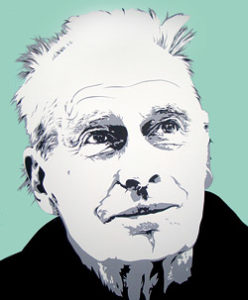Amidst the euphoria swirling around this historic inauguration was the passing of Norwegian philosopher, Arne Naess, on January 13. Perhaps best known for coining the term “Deep Ecology,” Naess was one of Europe’s most well respected and prolific philosophers of the 20th century. His writings and lectures spanned Spinoza, the nonviolence of Mahatma Gandhi, and 20th century environmentalism.
 I cross country skied with Naess when he was in his mid-80s. On a sunny spring day, we strided and poled three or four miles to the Peter Grubb Hut at the base of Castle Peak, not far from Donner Pass. We stopped occasionally to take in the sweeping views of the Sierra Nevada, and Naess fanatically checked his pulse. At the hut, he insisted on shadow boxing and fooling around with my friend, the outstanding Norwegian skier, Jon Erik Brondmo, and me. In addition to his childlike high energy, I had this feeling that Arne had a special lens onto the world, that he was sensing and relishing in layers of aliveness that the average person could not see or experience.
I cross country skied with Naess when he was in his mid-80s. On a sunny spring day, we strided and poled three or four miles to the Peter Grubb Hut at the base of Castle Peak, not far from Donner Pass. We stopped occasionally to take in the sweeping views of the Sierra Nevada, and Naess fanatically checked his pulse. At the hut, he insisted on shadow boxing and fooling around with my friend, the outstanding Norwegian skier, Jon Erik Brondmo, and me. In addition to his childlike high energy, I had this feeling that Arne had a special lens onto the world, that he was sensing and relishing in layers of aliveness that the average person could not see or experience.
Perhaps this is what helped him to discern the important differences between “Deep Ecology,” which addresses the root causes of biodiversity loss, and “Shallow Ecology,” that attempts to remediate environmental problems with end-of-pipe fixes. Naess very clearly stated his concerns about the growing human population, the rise of affluence and technology, and the reverence for all of the earth’s species. Among his more notable quotes, I remember him saying that he was a pessimist for the 21st century but an optimist for the 23rd century, when he envisioned that extreme changes in the human population, in ecological and social justice, and other developments would once again turn us toward a more harmonious way of life. But Naess believed in personal responsibility and urgency. “Every week counts. How terrible and shamefully bad conditions will be in the 21st century, or how far down we fall before we start on the way back up, depends on what YOU and others do today and tomorrow. There is not a single day to be lost. We need activism on a high level immediately.”
Below is the 8-Point Deep Ecology Platform drafted by Arne Naess and George Sessions:
1. The well-being and flourishing of human and nonhuman life on Earth have value in themselves (synonyms: inherent worth, intrinsic value, inherent value). These values are independent of the usefulness of the nonhuman world for human purposes.
2. Richness and diversity of life-forms contribute to the realization of these values and are also values in themselves.
3. Humans have no right to reduce this richness and diversity except to satisfy vital needs.
4. Present human interference with the nonhuman world is excessive, and the situation is rapidly worsening.
5. The flourishing of human life and cultures is compatible with a substantial decrease of the human population. The flourishing of nonhuman life requires such a decrease.
6. Policies must therefore be changed. The changes in policies affect basic economic, technological, and ideological structures. The resulting state of affairs will be deeply different from the present.
7. The ideological change is mainly that of appreciating life quality (dwelling in situations of inherent worth) rather than adhering to an increasingly higher standard of living. There will be a profound awareness of the difference between big and great.
8. Those who subscribe to the foregoing points have an obligation directly or indirectly to participate in the attempt to implement the necessary changes.
NY Times Obituary